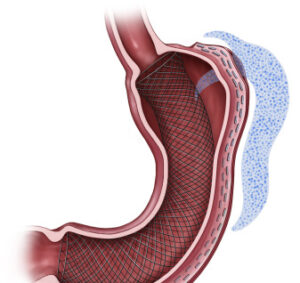If you are considering gastric sleeve weight loss surgery, you have come to the right place. In this blog post, we will discuss everything you need to know about the procedure. We will talk about what gastric sleeve surgery is, how it works, and who is a good candidate for the surgery. Additionally, we will discuss the risks and benefits of gastric sleeve surgery, as well as the recovery process. By the end of this blog post, you should have a good understanding of what gastric sleeve surgery is and whether or not it is right for you!
Contents
What Is Gastric Sleeve Surgery?
Gastric sleeve surgery, also known as sleeve gastrectomy, is a type of weight loss surgery that helps people lose weight by reducing the size of their stomach. It is a type of weight loss surgery that involves removing a portion of the stomach. This results in a smaller stomach size, which can help to promote weight loss. Gastric sleeve surgery is typically performed as a laparoscopic procedure, which means that it is minimally invasive and requires only small incisions.
One of the benefits of gastric sleeve surgery is that it does not involve rerouting the intestines or making any changes to the digestive system. This can make it a more appealing option for some people than other types of weight loss surgery, such as gastric bypass surgery. Additionally, gastric sleeve surgery has been shown to be effective at promoting significant and long-term weight loss.
Gastric sleeve surgery is not typically recommended for people who only need to lose a small amount of weight. Additionally, gastric sleeve surgery is not reversible, so it is important to be sure that you are ready to commit to making long-term lifestyle changes before proceeding with the surgery.
How Does The Surgery Work?
Gastric sleeve surgery works by reducing the amount of food that can be eaten at one time and by causing weight loss. The surgery involves removing a portion of the stomach, which reduces the amount of food that can be eaten at one time. Additionally, gastric sleeve surgery causes weight loss by decreasing the hormones that are responsible for hunger (ghrelin).
The process of gastric sleeve surgery begins with the surgeon making small incisions in the abdomen. A laparoscope (a thin, long tube with a camera) is then inserted through one of these incisions. The laparoscope is used to help guide the surgeon during the procedure.
The next step is to remove a portion of the stomach. The amount of stomach that is removed depends on the individual, but it typically ranges from 60-80%. Once the stomach has been removed, the remaining portion of the stomach is closed with staples or sutures. The gastric sleeve surgery takes about one to two hours to complete and most people stay in the hospital for two to three days after surgery.
Who Is A Good Candidate For This Surgery?
 Patients who are good candidates for gastric sleeve surgery are typically those who:
Patients who are good candidates for gastric sleeve surgery are typically those who:
- Are obese, with a body mass index (BMI) of 40 or more, or
- Have a BMI of 35 or more and suffer from obesity-related health conditions, such as diabetes, high blood pressure, sleep apnea, etc.
- Have unsuccessfully tried other weight loss methods, such as diet and exercise.
- Are committed to making lifestyle changes after surgery.
- Are mentally and emotionally prepared for surgery.
- Understand the risks and benefits of the procedure.
If you are considering gastric sleeve surgery, it is important to consult with a qualified bariatric surgeon to see if you are a good candidate for the procedure.
During your consultation, your surgeon will evaluate your health and weight loss history to determine if gastric sleeve surgery is right for you.
Your surgeon will also discuss the risks and benefits of gastric sleeve surgery with you so that you can make an informed decision about whether or not to proceed with the procedure.
What Are The Benefits Of Gastric Sleeve Surgery?
Gastric sleeve surgery, also known as gastrectomy or vertical sleeve gastrectomy, is a weight loss surgery that involves removing a portion of the stomach. This results in:
Smaller stomach size
The surgery is effective enough that it results in making your stomach about the size of a banana after surgery. This smaller stomach size not only limits the amount of food you can eat but also causes you to feel full more quickly.
Reduced hunger
Reduced hunger is one of the main benefits of gastric sleeve surgery. One study showed that gastric sleeve patients were able to stick to their diets better and had less of an urge to eat in general.
Decreased calorie absorption
Another benefit of gastric sleeve surgery is that it decreases the number of calories your body can absorb. This is because part of the small intestine is also removed during the surgery. This removal results in fewer calories being absorbed into the body, which can lead to weight loss.
Weight loss
 One of the main reasons people opt for gastric sleeve surgery is for weight loss. On average, patients lose about 60% of their excess body weight within the first year after surgery. And, unlike other weight-loss surgeries, gastric sleeve surgery is reversible if necessary.
One of the main reasons people opt for gastric sleeve surgery is for weight loss. On average, patients lose about 60% of their excess body weight within the first year after surgery. And, unlike other weight-loss surgeries, gastric sleeve surgery is reversible if necessary.
Improved blood sugar control
Gastric sleeve surgery has also been shown to improve blood sugar control in patients with diabetes. One study showed that gastric sleeve surgery was able to improve blood sugar control in patients with type II diabetes up to one year after surgery.
Reduced risk of heart disease
Another benefit of gastric sleeve surgery is that it can reduce the risk of heart disease. This is because obesity is a major risk factor for heart disease. Gastric sleeve surgery can help to reduce the risk of heart disease by helping patients lose weight.
Reduced appetite
Appetite is reduced both due to the smaller stomach size and due to hormones that are released during surgery. These hormones help to control hunger and make you feel full.
As you can see, there are many benefits to gastric sleeve surgery. It is an effective weight-loss surgery but it also has some risks associated with it.
What Are The Risks Of Gastric Sleeve Surgery?
While gastric sleeve surgery is less invasive than other weight-loss surgeries, it still carries some risks. These include:
Bleeding
Bleeding is one of the most common complications associated with gastric sleeve surgery. This can usually be controlled with medication but in some cases, it may require a transfusion.
Infection
Infection is another potential complication of gastric sleeve surgery. This is usually treated with antibiotics but in some cases, it may require a longer hospital stay.
Leaks
 Leaks are one of the most serious complications associated with gastric sleeve surgery. A leak can occur when the staples that hold the gastric sleeve in place come loose. If a leak occurs, it can be very serious and may require additional surgery to repair.
Leaks are one of the most serious complications associated with gastric sleeve surgery. A leak can occur when the staples that hold the gastric sleeve in place come loose. If a leak occurs, it can be very serious and may require additional surgery to repair.
Pouch dilation
Pouch dilation is a complication that can occur when the gastric sleeve stretches. This can usually be treated with medication but in some cases, it may require surgery.
Nutritional deficiencies
Nutritional deficiencies are another potential complication of gastric sleeve surgery. This is because the surgery can cause malabsorption of nutrients. Taking supplements and eating a healthy diet is important to avoid nutritional deficiencies.
What Is The Recovery Process Like?
 The recovery process for gastric sleeve surgery typically takes about two weeks. During the first week after surgery, you will likely stay in the hospital so that your doctor can monitor your progress. You will need to take it easy during this time and may need help with activities of daily living. After you are released from the hospital, you will need to slowly increase your activity level and eat a healthy diet. Most people return to their normal activities within four to six weeks after surgery.
The recovery process for gastric sleeve surgery typically takes about two weeks. During the first week after surgery, you will likely stay in the hospital so that your doctor can monitor your progress. You will need to take it easy during this time and may need help with activities of daily living. After you are released from the hospital, you will need to slowly increase your activity level and eat a healthy diet. Most people return to their normal activities within four to six weeks after surgery.
A majority of patients report excellent recoveries following gastric sleeve surgery. Most are able to return to light activity and work within a few days of their procedure. More strenuous activity and exercise can usually be resumed after about four weeks. Recovery times vary from person to person but are generally shorter than those for other weight-loss surgeries. Additionally, gastric sleeve patients typically don’t experience dumping syndrome or other gastrointestinal issues that can occur after other types of bariatric surgery.
If you’re considering gastric sleeve surgery, be sure to speak with a qualified bariatric surgeon to learn more about the procedure and what you can expect during your recovery.
Are There Any Alternatives?
Yes, there are both invasive and non-invasive alternatives to gastric sleeve weight loss surgery. They include:
Intragastric balloon
Intragastric balloon surgery is a weight-loss surgery that involves placing a deflated balloon in your stomach through a thin, flexible tube inserted through your mouth. Once the balloon is in place, it’s inflated with sterile water to help fill up space in your stomach so you feel fuller sooner and eat less. The procedure takes about 20 minutes, and you’re typically awake during surgery.
Endoscopic sleeve gastroplasty
is a newer, minimally invasive weight loss surgery. It is similar to gastric bypass surgery and gastric sleeve surgery in that it reduces the size of the stomach. During endoscopic sleeve gastroplasty, the surgeon inserts an endoscope (a long, thin tube with a camera on the end) down your throat and into your stomach. The surgeon then uses special instruments to remove a large portion of the outer layer of your stomach. This reduces the size of your stomach by about 80%.
Weight loss drugs
One alternative to gastric sleeve surgery is weight loss drugs. These can help you lose weight by reducing your appetite or increasing the amount of energy your body burns. Weight loss drugs are usually only recommended for people who are obese and have not been able to lose weight through diet and exercise alone. Some effective weight loss pills are:
- Phentermine
- Lorcaserin
- Orlistat
- Bupropion-naltrexone
Lifestyle changes
Another alternative to gastric sleeve surgery is making lifestyle changes. Healthy lifestyle changes that can help you lose weight include:
- Limiting your alcohol intake
- Cutting back on sugary drinks
- Eating smaller meals
- Avoiding processed foods
- Practicing meditation
- Getting enough sleep
- Reducing stress
Making these lifestyle changes can be difficult, but they’re often more successful in the long term than weight loss surgery. Gastric sleeve surgery should be considered a last resort for people who are obese and have not been able to lose weight through other means.
Diet and exercise
 Modifying your diet and exercising regularly is one of the best alternative treatments for obesity. Healthy eating and physical activity can help you control your weight, reduce your risk of developing obesity-related diseases, and improve your overall health. Eat foods high in fiber, lean protein, healthy fats, and complex carbohydrates. Incorporate physical activity into your daily routine by taking a brisk walk or jog for 30 minutes every day. With proper exercise and diet, you can see significant results without resorting to surgery.
Modifying your diet and exercising regularly is one of the best alternative treatments for obesity. Healthy eating and physical activity can help you control your weight, reduce your risk of developing obesity-related diseases, and improve your overall health. Eat foods high in fiber, lean protein, healthy fats, and complex carbohydrates. Incorporate physical activity into your daily routine by taking a brisk walk or jog for 30 minutes every day. With proper exercise and diet, you can see significant results without resorting to surgery.
These are a few alternatives to gastric sleeve surgery. Gastric sleeve surgery is a major decision and should not be taken lightly. Hence, it is important to compare your options before deciding.
Conclusion
So, there you have it! Everything you need to know about gastric sleeve weight loss surgery. If you’re considering gastric sleeve weight loss surgery, congratulations—you’ve taken the first step towards improving your health and quality of life! This type of surgery can be a great option for those who are struggling to lose weight through diet and exercise alone. Gastric sleeve surgery is not for everyone, so it’s important to talk to your doctor about all of your options before making a decision.
For more tips on healthy eating and weight loss, contact Mantra Care. We can help you develop a healthy weight loss plan that is tailored to your specific needs and goals. As always, consult with a registered dietitian or nutritionist if you have any questions or concerns about starting a new diet.


